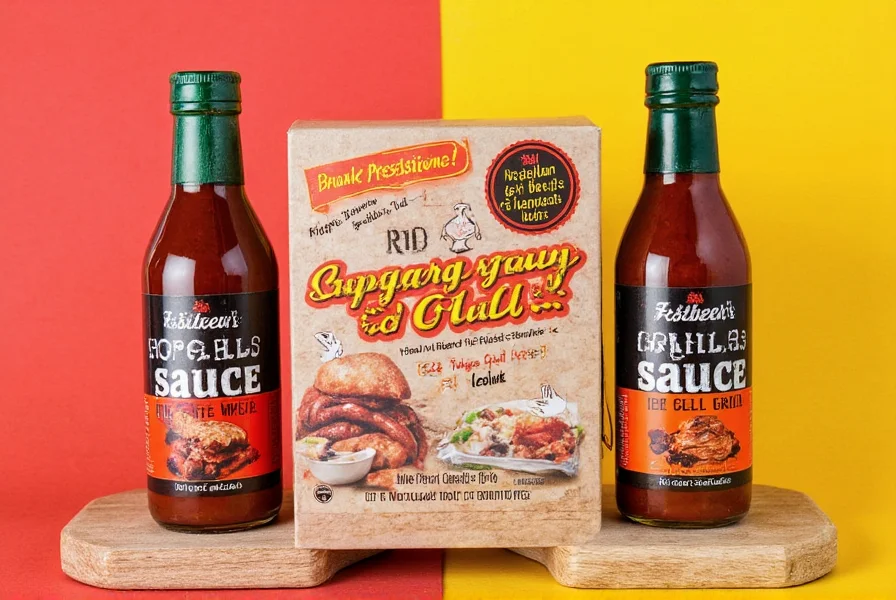🔥 Korean Grill Sauce Showdown: Spicy, Sticky, and Totally Irresistible!
Are you ready to fire up your taste buds and transport your kitchen to the sizzling streets of Seoul? If you've ever had Korean BBQ or drooled over those glossy, caramelized meats grilled right at your table, then you know one thing powers that flavor explosion: Korean grill sauce.
Contents
- What Exactly is Korean Grill Sauce?
- What Does It Taste Like?
- The Many Faces of Korean Grill Sauce
- Beyond the Grill: Creative Ways to Use Korean BBQ Sauce
- Buying Guide: Finding Your Perfect Match
- DIY Korean Grill Sauce: Stir, Simmer, Sizzle!
- Final Thoughts
What Exactly is Korean Grill Sauce?
Korean grill sauce — or bulgogi jjang, as it's often called — is a sweet, savory, and sometimes spicy condiment that serves as both marinade and dipping sauce in Korean cuisine. Unlike Western barbecue sauces that lean heavily on tomatoes and molasses, this one is all about the umami magic of soy sauce, garlic, sesame oil, and sugar or honey.
Traditionally used for marinating thin slices of beef like bulgogi or pork for galbi, this sauce gives meat its signature caramelized crust when grilled. But nowadays, its uses have expanded way beyond the grill pan!
What Does It Taste Like?
Imagine a perfect balance between salty, sweet, garlicky, and slightly nutty from sesame oil. Some versions add gochujang (fermented red chili paste) for a hint of spice and depth. The best Korean grill sauces are thick enough to cling to meat, but not so sticky they drown out the flavors.
If you’ve tasted teriyaki sauce and thought, "That’s good, but I wish it had more soul," then Korean BBQ sauce might be your new obsession. It’s richer, bolder, and layered with complex flavors that come from fermented ingredients and natural sweeteners like pear or kiwi juice in some traditional recipes.
The Many Faces of Korean Grill Sauce
Just like pizza or tacos, no two Korean grill sauces are exactly alike. Here’s a quick breakdown of the main types:
| Type | Taste Profile | Best For |
|---|---|---|
| Classic Sweet & Savory | Mild heat, balanced sweetness, deep umami | Bulgogi, galbi, marinades |
| Spicy Kimchi-Inspired | Fiery, tangy, with fermented kick | Spicy pork, rice bowls, kimchi fries |
| Soy-Based Gluten-Free | Cleaner, lighter soy flavor | Gluten-sensitive eaters, delicate dishes |
| Sweet Chili Fusion | Fruity, bold, sticky finish | Wings, skewers, burgers |
Beyond the Grill: Creative Ways to Use Korean BBQ Sauce
Think of Korean grill sauce as your flavor multiplier. Here are some fun ways to use it outside the traditional setting:
- Stir-Fry Glaze: Toss veggies and noodles in a spoonful for an instant Seoul-style stir-fry.
- Rice Bowl Base: Mix with rice or drizzle over a bibimbap bowl for a flavor boost.
- Marinade Magic: Slather it onto chicken wings, tofu, or mushrooms before baking or grilling.
- Dipping Dream: Thin it out with a splash of vinegar or sesame oil for a dipping sauce that upgrades everything from dumplings to egg rolls.
- Pizza Twist: Swap tomato sauce with Korean BBQ sauce for a uniquely addictive pizza base.

Buying Guide: Finding Your Perfect Match
With so many brands flooding grocery shelves and online stores, choosing the right Korean grill sauce can feel overwhelming. Here’s how to pick your ideal match:
Look for These Ingredients
- Soy Sauce: Base flavor, look for low-sodium options if you're health-conscious.
- Garlic & Ginger: Freshness matters! Check labels for real ginger or garlic content.
- Sugar or Honey: Natural sweeteners provide that classic glaze without artificial aftertaste.
- Sesame Oil: Adds richness; make sure it’s listed early in the ingredients.
- Gochujang (optional): Adds heat and complexity. Great for spicy lovers!
Top Brands to Try
| Brand | Flavor Profile | Features | Best For |
|---|---|---|---|
| O'Food Korean BBQ Sauce | Classic sweet & savory | No artificial preservatives, gluten-free | Grilled meats, marinades |
| Sweet Chili Fusion by Seoul Style | Sweet, fruity, slightly spicy | Vegan, gluten-free, organic ingredients | Wings, burgers, veggie skewers |
| K-Town Gochujang Grill Sauce | Spicy, smoky, rich umami | Uses traditional fermentation, contains gluten | Spicy pork, kimchi fried rice |
| Namco Korean BBQ Sauce | Robust soy-based flavor | Economical, widely available | Everyday grilling, meal prep |

DIY Korean Grill Sauce: Stir, Simmer, Sizzle!
Feeling adventurous? Making your own Korean grill sauce lets you customize every note — less sugar, extra spice, even a dash of bourbon if you’re feeling fancy. Here’s a basic recipe to get you started:
Homemade Korean Grill Sauce Recipe
- 1/4 cup soy sauce
- 2 tbsp brown sugar or honey
- 1 tbsp sesame oil
- 1 clove garlic, minced
- 1 tsp grated ginger
- 1 tbsp gochujang (for heat)
- 1 tsp rice vinegar or lemon juice
- Optional: 1 tbsp kiwi or pear juice for tenderizing effect
Mix all ingredients in a small bowl until well combined. Let sit for 30 minutes to meld flavors. Store in the fridge for up to 2 weeks. Brush onto meat before grilling, or use as a finishing drizzle after cooking.
Final Thoughts
Whether you’re a seasoned Korean food lover or just curious about global flavors, Korean grill sauce is a game-changer in your pantry. With its perfect balance of sweet, savory, and spicy, it transforms everyday meals into something special.
From store-bought convenience to homemade customization, there’s a Korean BBQ sauce out there for everyone. Don’t be afraid to experiment — mix a few together, or create your own blend. After all, the best part of grilling isn’t just the food… it’s the fun you have along the way!










 浙公网安备
33010002000092号
浙公网安备
33010002000092号 浙B2-20120091-4
浙B2-20120091-4